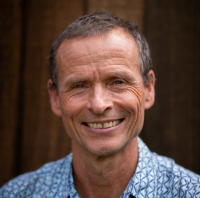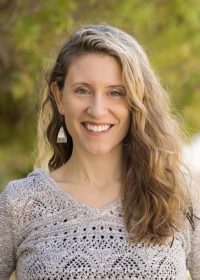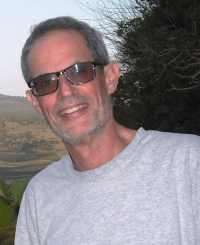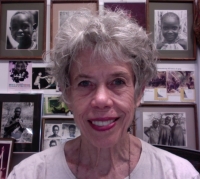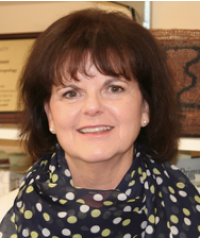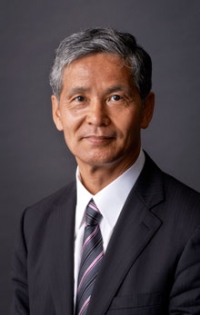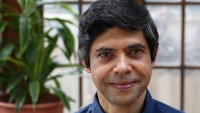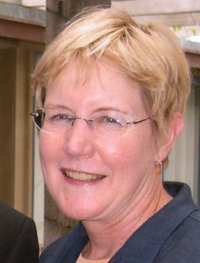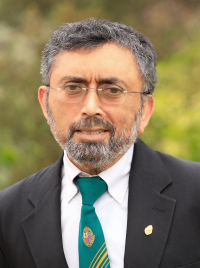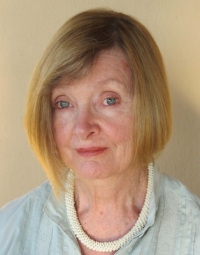Comparative Anthropogeny: Exploring The Human-Ape Paradox
Biographical Sketches: Co-Chairs
UC San Diego
Pascal Gagneux is CARTA's Executive Co-Director, a Professor of Pathology and Anthropology, and the Department Chair of Anthropology at UC San Diego. He is interested in the evolutionary mechanisms responsible for generating and maintaining primate molecular diversity. The Gagneux laboratory studies cell-surface molecules in closely related primates species. His focus is on glycans, the oligosaccharides attached to glycolipids and glycoproteins of the surfaces of every cell and also secreted into the extra-cellular matrix. Gagneux's laboratory is exploring the roles of molecular diversity in protecting populations from pathogens as well as potential consequences for reproductive compatibility. Dr. Gagneux’s interest is in how glycan evolution is shaped by constraints from endogenous biochemistry and exogenous, pathogen-mediated natural selection, but could also have consequences for sexual selection. Dr. Gagneux has studied the behavioral ecology of wild chimpanzees in the Taï Forest, Ivory Coast, population genetics of West African chimpanzees, and differences in sialic acid biology between humans and great apes with special consideration of their differing pathogen regimes. In 2011, while Associate Director of CARTA, Dr. Gagneux helped to establish a graduate specialization in Anthropogeny at UC San Diego. This wholly unique graduate specialization is offered through eight participating graduate programs in the social and natural sciences at UC San Diego.
University of Nevada, Las Vegas
Alyssa Crittenden is a human behavioral ecologist and nutritional anthropologist who has worked with the Hadza hunter-gatherers of Tanzania since 2004. Her primary research interest is the study of the evolution of human behaviors as a function of socioecological context. The majority of her work explores the intersection of diet, life history, and sociality during human evolution. Her research foci include: evolution of the human diet; evolution of childhood; children’s foraging and food sharing; nutritional and behavioral correlates of cooperative breeding; life history theory. She is currently Vice Provost for Graduate Education; Dean of the Graduate College; and Professor of Anthropology at University of Nevada, Las Vegas and serves on the CARTA External Advisory Board.
Biographical Sketches: Speakers
Loughborough University
Barry Bogin is a Professor Emeritus of Biological Anthropology of the School of Sport, Exercise & Health Sciences, Loughborough University, UK and William E Stirton Professor Emeritus of Anthropology of the University of Michigan-Dearborn. He received his Ph.D. in anthropology from Temple University in 1977. Bogin has expertise in human physical growth and development, nutritional ecology, evolutionary biology, Maya people, and human adaptation. He has authored more than 240 books, articles, book chapters, and popular essays. These include the books Patterns of Human Growth, 3rd edition (Cambridge University Press, 2021).
Further reading:
Barry Bogin, Jared Bragg, Christoper Kuzawa (2014) Humans are not cooperative breeders but practice biocultural reproduction. Annals of Human Biology, 41(4):368-80.
Barry Bogin, Carlos Varea, Michael Hermanussen, Christiane Scheffler (2018) Human life course biology: A Centennial Perspective of scholarship on the human pattern of physical growth and its place in human biocultural evolution. American Journal of Physical Anthropology, 165:834–854.
University of New England, Australia (retired)
Iain Davidson is an emeritus professor of archaeology and paleoanthropology at the University of New England, Australia. His research has included work on the Spanish Upper Paleolithic, archaeology and ethnography of Northwest Queensland, Australian rock art, the colonization of Sahul, language origins, cognitive evolution, and projects with multiple Aboriginal groups in Australia. Publications include numerous books, chapters, and journal articles. He is a Fellow of the Australian Academy of Humanities, Visiting Chair of Australian Studies at Harvard University (2008-9), and 2010 recipient of the Rhys Jones Medal of the Australian Archaeological Association.
University of Utah
Kristen Hawkes is Distinguished Professor of Anthropology at the University of Utah. Her principle interests are the evolutionary ecology of hunter-gatherers and human evolution. She studies age and sex differences in behavior, using comparisons between people and other primates, paleoanthropology and evolutionary modeling to develop and test hypotheses about the evolution of human life histories and social behavior. Hawkes has pursued ethnographic fieldwork in highland New Guinea, Amazonia, and eastern and southern Africa. She is a member of the Scientific Executive Committee of the Leakey Foundation, the American Academy of Arts and Sciences, and the National Academy of Sciences.
Pennsylvania State University
Nina G. Jablonski is the Evan Pugh Professor of Anthropology at Pennsylvania State University. A biological anthropologist by training, Jablonski pursues basic research on the evolution of adaptations of primates, including humans, to their environment. For the last 25 years, she has been most intrigued by questions in human evolution not directly answered by the fossil record, foremost among these being the evolution of human skin and skin pigmentation. From an initial interest in the evolution of skin pigmentation, Jablonski has pursued issues surrounding the meanings of skin color in modern life, notably the relationships to health and society. In addition to her scholarly articles on skin and skin color, Jablonski has written two popular books on the subject, Skin: A Natural History (2006) and Living Color: The Biological and Social Meaning of Skin Color (2012), both published by University of California Press. Jablonski received her A.B. in biology at Bryn Mawr College in 1975 and her Ph.D. in anthropology at the University of Washington in 1981. She is an elected Fellow of the American Academy of Arts and Sciences, the American Philosophical Society, and the American Association for the Advancement of Science, and a member of the Board on Behavioral, Cognitive, and Sensory Sciences of the U.S. National Research Council. She is the recipient of an Alphonse Fletcher, Sr. Fellowship (2005), a Guggenheim Fellowship (2012), and an honorary doctorate from University of Stellenbosch in South Africa (2010) for her contribution to the worldwide fight against racism. Jablonski’s current research and educational projects are funded by grants from the National Science Foundation and the Robert Wood Johnson Foundation and include a project examining the factors that affect vitamin D status in healthy young adults in South Africa, the writing of a graphic novel about skin color for South African middle school children, and the development of a science summer camp curriculum for minority and underserved middle school students in the U.S.
University of California, San Diego
Robert Kluender is a Professor of Linguistics at UC San Diego and serves on the CARTA Internal Advisory Board. He has been a member of CARTA since the mid-1990s, and has co-organized two CARTA symposia during that time: one on language evolution, and the other on domestication and human self-domestication. He also serves on the advisory board of the Center for Research in Language at UC San Diego. The underlying question addressed in his research is the extent to which the natural limitations of human cognition shape and constrain the human language system: how much of linguistic competence can be reduced to facts of performance, and how language is represented and processed in the brain. The Language and Brain Laboratory addresses these questions in experimental studies of language processing focused on the interaction of language structure, working memory, semantics and pragmatics, particularly as it unfolds in real time. Kluender also has long-standing interests in the origins of apparent linguistic constraints, the evolutionary foundations of language, and the intersection of language, consciousness, and the physical world.
Miami University
Linda Marchant is Professor Emerita in the Department of Anthropology at Miami University (Ohio). She served for 10 years as the Anthropology Chair and was the founding chair of that department. Her research interests include behavioral primatology, laterality of function (handedness), African apes and visual anthropology. She is the author of more than 70 book chapters and journal articles, co-editor of an invited special issue of Annals of the New Academy of Sciences (2013) “The Evolution of Human Handedness”, and co-editor of Behavioural Diversity in Chimpanzees and Bonobos (Cambridge University Press, 2002) and Great Ape Societies (Cambridge University Press, 1996). She has been a Visiting Research Fellow, Centre for Social Learning and Cognitive Evolution, University of St. Andrews, (2001); Visiting Fellow, Leverhulme Centre for Human Evolutionary Studies, Department of Biological Anthropology, University of Cambridge, Research Associate, Darwin College, University of Cambridge (2009-2010); and Visiting Scholar, Department of Anthropology, UC San Diego and Visiting Professor, Center for Academic Research and Training in Anthropogeny (CARTA), UC San Diego, January-June, 2013.
Northwest University, Xi'an, China
Tetsuro Matsuzawa is a former Director of the Primate Research Institute of Kyoto University, Japan. He is currently the Academic Advisor at Chubu Gakuin University, Japan, and an Invited Professor at Northwest University in Xi'an, China. Matsuzawa has studied chimpanzee intelligence both in the laboratory and in the wild. His laboratory work is known as the "Ai project". Since 1977, it has focused on language-like skills, the concept of number, and working memory. The participants include a 48-year-old female chimpanzee named Ai, her 25-year-old son named Ayumu, and others who live in a community of 11 chimpanzees, comprising three generations. The working memory of young chimpanzees may be superior to that of humans (https://www.youtube.com/watch?v=ktkjUjcZid0). The fact led him to the "Cognitive Tradeoff Hypothesis". In parallel with his efforts, Matsuzawa has also studied wild chimpanzees at Bossou and Nimba, Republic of Guinea, West Africa, since 1986. The Bossou chimpanzees are known to use a pair of stones as a hammer and an anvil to crack open oil-palm nuts. The long-term research revealed topics such as the 100% lateralization of handedness when using a stone hammer, the critical period for learning nut-cracking between the ages of 3 and 5, and the social learning process known as "Education by Master-Apprenticeship," as well as grand-mothering in chimpanzees, among others. Matsuzawa attempts to synthesize fieldwork and laboratory work to gain insight into the minds of chimpanzees, our evolutionary relatives. He has received several prizes, including the Purple Ribbon Medal of Honor, the Jane Goodall Award, and the Person of Cultural Merit award from Japan. He has published numerous articles and books, including "Primate Origins of Human Cognition and Behavior" (Springer, 2001), "Cognitive Development in Chimpanzees" (Springer, 2006), "The Mind of the Chimpanzee" (Chicago University Press, 2010), and "Chimpanzees of Bossou and Nimba" (Springer, 2011).
Tufts University
Aniruddh (Ani) Patel researches the cognitive, neural, and evolutionary foundations of music cognition. He received a BA in biology from the University of Virginia (1987) and an AM (1990) and Ph.D. (1996) in organismic and evolutionary biology from Harvard University. He then joined The Neurosciences Institute in San Diego, CA, where he was a Senior Fellow from 2005-2012. He is currently a professor in the Department of Psychology at Tufts University.
Areas of special interest include the relationship between music and language (the topic of his 2008 book, Music, Language, and the Brain, Oxford Univ. Press), the processing of musical rhythm, and cross-species studies of music processing. A wide variety of methods are used in this research, including brain imaging, behavioral experiments, theoretical analyses, acoustic research, and comparative studies with nonhuman animals.
Dr. Patel has served as President for the Society for Music Perception and Cognition (2009-2011). In 2015 Dr. Patel was appointed as Fellow of the Canadian Institute for Advanced Research (CIFAR), in the Program in Brain, Mind, and Consciousness. In 2018 he was awarded a Fellowship from the Radcliffe Institute for Advanced Study at Harvard University and a Guggenheim Fellowship to write a book on the evolution of music cognition.
Emory University School of Medicine, Yerkes Primate Research Center
Todd Preuss is a biological anthropologist and neuroscientist. He is Professor Emeritus of Pathology, Emory University School of Medicine and the Division of Neuropharmacology and Neurologic Diseases at the Emory National Primate Research Center. His research has focused on the organization and evolution of primate cerebral cortex, particularly visual and frontal cortex, and he has authored a series of papers exploring the application of modern phylogenetic concepts and methods to problems of brain evolution. Recently, his research has concentrated on identifying evolutionary specializations of cerebral cortex, using information derived from genomics studies to guide histological and anatomical investigations, and comparative neuroimaging studies of humans, chimpanzees, and other nonhuman primates.
UC San Diego
Margaret Schoeninger is Distinguished Professor Emerita of Anthropology at UC San Diego, a Research Archaeologist in the Glenn Black Laboratory of Archaeology at Indiana University, and Emerita Co-Director of CARTA. She has done fieldwork in North America, Mexico, Pakistan, India, Kenya, and Tanzania as well as laboratory research on carbon, nitrogen, and oxygen stable isotope ratio analysis in biological tissues and food component analysis of traditional foods. Her major interest is in the evolution of human diet particularly as it informs our understanding of the appearance and evolution of the human lineage.
UC San Diego School of Medicine
Ajit Varki is a Distinguished Professor of Medicine and Cellular & Molecular Medicine, Emeritus Co-Director of CARTA, Emeritus Co-Director of the Glycobiology Research and Training Center at UC San Diego, and Adjunct Professor at the Salk Institute. He received basic training in physiology, medicine, biology, and biochemistry at the Christian Medical College (CMC), Vellore, The University of Nebraska, and Washington University in St. Louis. He also has formal training and board certification in internal medicine, hematology, and oncology. Varki is the executive editor of Essentials of Glycobiology (Cold Spring Harbor Press, 4th Edition, 2022) and is recipient of a MERIT award from the NIH, and an American Cancer Society Faculty Research Award. Honorific elections include the American Academy of Arts and Sciences, the National Academy of Medicine, the American Society for Clinical Investigation, and the Association of American Physicians. He is also recipient of the three highest honors in his field, the Karl Meyer Award of the Society for Glycobiology, the International Glycoconjugate Organization Award and the Rosalind Kornfeld Award for Lifetime Achievement in Glycobiology. He is recognized for creating the first major open access research journal (J. Clin. Invest., 1996) as well as the first major open access textbook (Essentials of Glycobiology, 2009). He was honored with the Old Cottonian of Eminence Award at the 150th Anniversary of Bishop Cotton Boys School, Bangalore, India, (2015) as well as a Distinguished Faculty Medal and Oration at his medical school alma mater, CMC, Vellore. Significant past appointments include: Co-Head, UC San Diego Division of Hematology-Oncology; President of the Society for Glycobiology; Editor-in-Chief of the Journal of Clinical Investigation; Interim Director of the UC San Diego Cancer Center, President of the American Society for Clinical Investigation, and UC San Diego Associate Dean for Physician-Scientist Training. Varki's research interests are focused on a family of cell surface sugars called sialic acids, and their roles in biology, evolution and disease. Currently, active projects are relevant to the roles of sialic acids in microbial infectivity, the regulation of the immune response, the progression and spread of tumors, aging, and unique aspects of human evolution. His group is particularly intrigued to find multiple interrelated differences in sialic acid biology between humans and our closest evolutionary cousins, the "great apes." These differences are a signature of the events that occurred during the last few million years of human evolution, and appear to be relevant to understanding several aspects of the current human condition, both in health and disease. Varki’s book, Denial (Twelve, Hachette Books, 2013), explores a novel "Mind Over Reality Transition” (MORT) theory that denying reality and personal mortality was a key step in allowing the emergence of a full theory of mind, and in the origin of our species.
University of the Witwatersrand
Lyn Wadley is a Professor based in the Evolutionary Studies Institute at the University of the Witwatersrand (South Africa) where she specializes in Middle Stone Age cognitive archaeology. She is an A1-rated National Research Foundation researcher and recipient of some of South Africa’s top research awards. In 2014 and 2015, she was on the Thomson-Reuters High Citation list that records the top 1% of researchers globally. Her research into cognitive archaeology provides theory and methods for demonstrating that some Stone Age technologies can be proxies for complex brain power. She has excavated three important Middle Stone Age archaeological sites: Rose Cottage Cave in the eastern Free State and Sibudu and Border Caves in KwaZulu-Natal.
